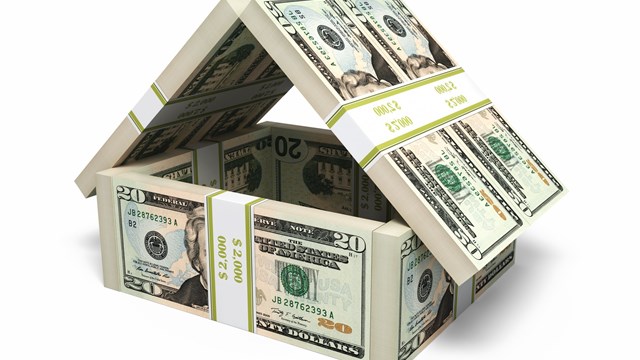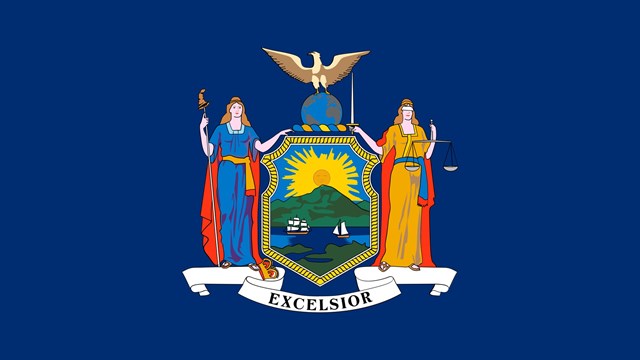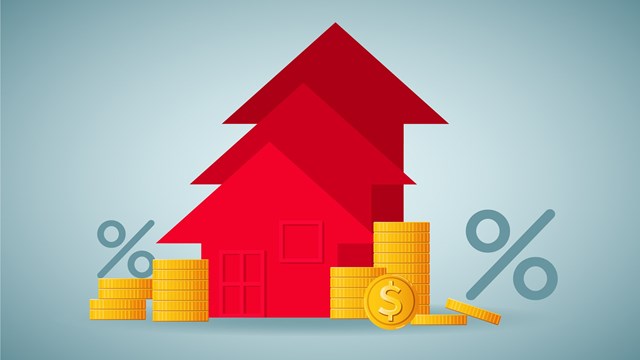The dreaded phrase “maintenance increase” is two words that most co-op owners may not want to hear, but sometimes it is necessary for a building’s board to make the unpopular decision of raising fees. With rising operating costs, fuel and insurance rates climbing, and the need for periodic emergency repairs, raising maintenance fees often is not only a necessity but may even be advisable.
“It’s totally dependent on economic consistency,” says Jeff Heidings of Siren Management Corp. in Manhattan. “Sometimes it needs to be done, or else there can be serious problems within the building.”
Having low maintenance fees can be an attractive selling point. Some buildings in Manhattan may pride themselves on not having increased maintenance for decades, but maintenance that’s too low can cause a host of problems on its own—from issues with the 80/20 rule to coming up short in cases of emergency.
As much as owners don’t want to hear that their maintenance will be increased, boards never like to increase their shareholders’ monthly payments but they know that it is a responsibility of their job to be proactive about protecting their building’s well-being and keeping their investment financially and physically sound.
Time Has Come
So how does a board know when that time is? Sometimes it’s obvious, sometimes not so much. If the building is hemorrhaging money in nickel-and-dime repairs of a physical problem that needs a decisive, long-term solution, an increase may be put into effect. Other times, a good board will notice that a potentially bad situation is ahead, and fixes the problem with an increase before the problem mushrooms into a full-blown crisis.
“When there is insufficient funds available to pay the normal operating expenses for the housing company, it is time to raise maintenance,” says Anita Sapirman, president of Manhattan-based Saparn Realty. “It is the board of directors/board of managers duty as the judiciary of the corporation to maintain a solvent budget for proper operations of the co-op/condo.”
Typically, a board determines the increase based on their proposed budget for the coming year. The increase is divided by the proportionate shares that each shareholder/ unit owner has.
“There is no standard schedule for this purpose,” Sapirman says. “An experienced board has the knowledge to review the monthly operating reports submitted by the managing agent and is aware of the variances from the budget to actual expenses for the given month and year to date.”
The residents of 314 West 56th Street had their maintenance fees increased in January of this year, after a new board came in to the building in October and saw the building was in trouble.
“We had three new board members, and we inherited a $14,000 deficit, with unpaid bills piling up, and we put together a budget,” says Donna Klein, president of the board. “Before we made the decision [to increase maintenance fees] we worked with our management company on creating a budget based on former years and based on projected increases in fuel, insurance, real estate taxes, etc. After we came up with a projected budget for 2006, we looked at the income and decided there was no way to avoid [an increase] without sinking into debt even more. We decided to put in a 15 percent increase to cover expected expenditures and a $14,000 assessment over a three-month period to clear up the back bills.”
After less than six months of the increase, the building is already starting to see things turn around.
Danger Zone
A good board in finalizing their budget for the upcoming year will generally raise the maintenance fees and/or common charges if necessary to balance the budget. These small annual increases help to keep up with the ever-increasing cost of operating and maintaining a building, and are often the recommended by accountants and financial advisors. Cost-of-living increases such as these also help control massive increases in the future and help keep down assessments.
“It’s not only an option—it is the necessary course of action,” says Heidings. “This is what most boards should be doing.”
If not, large increases could come about in a few years—and double-digit increases can represent real financial challenges for shareholders in many buildings.
“If there are no annual increases to balance the budget, the dangers are numerous,” says Sapirman. “Not being able to pay the bills, mortgage, utilities, taxes, etc., will jeopardize the financial stability of the housing company. Additionally, the board will have no choice but to institute a very large increase, which will be a hardship for some residents.”
That was something the residents at 314 West 56th Street were afraid of, but Klein said that all the residents have adjusted.
“It would have been a real danger if we didn’t do it,” she says. “We would have continued to become more and more in debt. You have to pay the monthly mortgage bill, you have to pay the fuel, you have to pay insurance. And when we first took over we realized immediately that when presented with the bills, we realized the maintenance wasn’t going to cover the outcome.”
Tax Help Available
New York residents should be aware that tax help is available. If a shareholder is a senior citizen on a fixed income then the board can help with certain tax programs, such as the Senior Citizen Rent Increase Exemption (SCRIE) application. Senior citizens living under rent control or rent stabilization may be entitled to an exemption from future rent increases under the SCRIE Program. Applications may be filed with the New York City Department of Aging. When the landlord raises the rent for other tenants, tenants with SCRIE do not have to pay the increased rate. Instead of the increased rent, the landlord is eligible for an equivalent credit on his or her property taxes.
Residents living in Mitchell Lama developments, Article XI co-ops or federally-assisted co-ops, can contact the Department of Housing Preservation & Development (HPD) to learn about several of their tax exemption programs. And the owners of one-, two- and three-family homes, condominiums, or cooperative apartments that are age 65 or older can qualify for the Senior Citizens Homeowner Exemption (SCHE). This tax program allows an owner, whose federal adjusted gross income is less than $32,400 a year, to receive a reduction of their assessed value of 5 percent to 50 percent (depending on income). Contact the New York City Department of Finance for further information.
Getting it Right
“There’s no such thing as too large a number for an increase,” says Heidings, “the important thing is a balanced budget and that is the number you use.”
The amount of any increase should be dictated by the amount needed to operate the building, so it’s important for the board to communicate with the managing agent and come up with the perfect figure.
“We went for what we needed—but we didn’t want to go back and ask for more so we didn’t make it too low,” says Klein. “We hope as finances turn around that maybe we can roll back the increases at some point.”
Low and Behold
Not every building raises maintenance fees as a first resort, as it is beneficial for them to keep them low in several cases as it is an attractive selling point for any unit.
“The real-time benefit is that it is easier to sell a unit where the maintenance is low,” says Sapirman, “but that’s not always possible, obviously.”
Heidings points out another factor, “If you keep them low you can wind up using up your reserve fund.”
Other Alternatives
Raising maintenance fees aren’t the only solution boards can come up with to raise money. Refinancing the underlying mortgage can reduce the interest rate of the mortgage and reduce the monthly payment. Additionally, refinancing the underlying mortgage on the building can raise funds for the reserve account to help with capital improvements. Sometimes assessments are used instead of maintenance increases to balance the budget.
“If there is room in the building for storage cages, the board can charge monthly fees for these cages,” says Sapirman. “If there is a garage, the board can raise the parking fees to increase income. Many of our boards have implemented utility pass-alongs to offset the ever-increasing cost of fuel and other things.”
Klein’s building talked about raising their flip tax from $3 a share to $5 at their annual meeting to help alleviate some financial pressures, but it was voted down.
“We are working on other things, but there’s not much we can do,” she says. “We did call Con Ed and are on the budget program now, so we know what we have to pay each month. We continue to look at vendor contracts and try to negotiate better prices.”
The Effects of 80/20
Since Klein’s building owns no commercial property, the 80/20 rule doesn’t affect them, but for those buildings that do, boards need to follow the golden rules when raising maintenance fees.
The 80/20 rule—namely Section 216 of the federal Internal Revenue Service (IRS) tax code—affects co-ops, and states that to avoid penalties, at least 80 percent of a building’s revenue must come directly from the shareholders, and no more than 20 percent of its income can come from outside sources—like first-floor retail tenants, parking garages, or leasing exterior space for billboards.
“The 80/20 is only impacted if a building has commercial property income,” says Sapirman. “If the maintenance is higher, then the commercial income can be higher in following the 80/20 rule. The [co-op] corporation’s income must be at least 80 percent from the shareholders/unit owners maintenance/common charges, in order to protest the assessed valuation for the purpose of reducing the real estate taxes.”
Final Thoughts
Higher maintenance costs are no picnic either for the shareholders or the boards that implement them, but unfortunately higher costs are something that everyone should realize is a necessity in the majority of co-ops in Manhattan these days.
A good board will create a reasonable budget and work at lowering certain out-of-control costs and then come up with a maintenance increase that will hopefully keep the building on solid ground and running smoothly for years to come. n
Keith Loria is a freelance writer and a frequent contributor to The Cooperator.







11 Comments
Leave a Comment